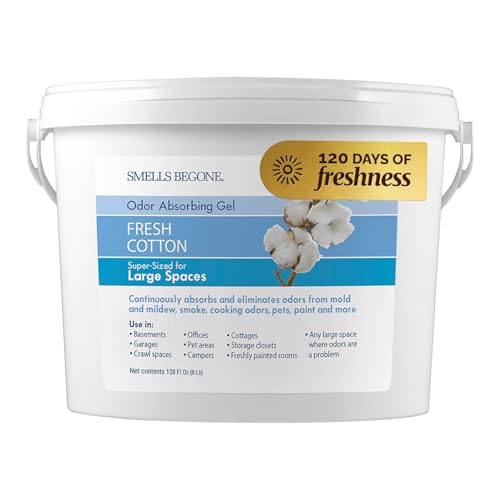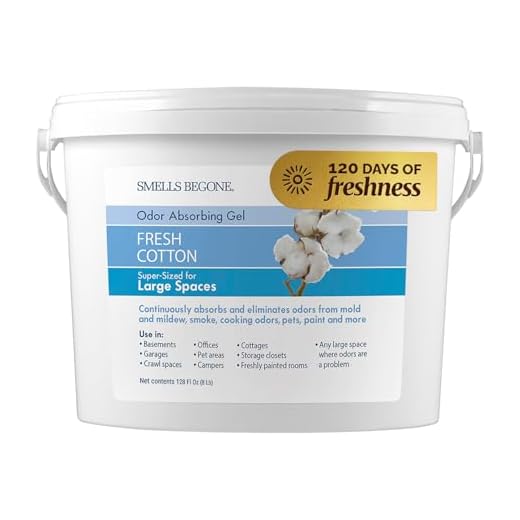



Vinegar serves as an excellent first step in neutralizing unpleasant odors. Mixing equal parts of water and white vinegar in a spray bottle can create a powerful solution. Spraying the affected areas directly helps to eliminate residual scents quickly and efficiently.
Another effective method involves using baking soda. After applying the vinegar solution, sprinkling baking soda generously over the damp area can absorb lingering odors. Allow it to sit for at least 15 minutes before sweeping it away, as this allows the baking soda to work its magic.
For persistent issues, enzymatic cleaners are highly recommended. These products break down odor-causing compounds at a molecular level. Applying them according to the manufacturer’s instructions ensures the best results and a fresh outdoor environment.
Lastly, maintaining cleanliness is crucial. Regularly cleaning the area where odors are present can prevent the buildup of unpleasant scents. Combining these methods can lead to a more pleasant outdoor experience.
Identify the Source of the Odor
To tackle unpleasant scents, pinpointing the exact location is paramount. Begin with a thorough inspection of the yard or garden. Pay close attention to areas where grass appears discolored or patches seem different from the surrounding landscape. These clues often indicate where the problem lies.
Utilize your sense of smell. As an expert in all things feline, trust instincts to guide you. Move slowly and sniff around the suspected areas. If a particularly strong odor emanates from a specific spot, that’s likely the source.
Check Elevated Surfaces
Don’t overlook elevated surfaces such as walls, fences, or garden furniture. Cats may mark these higher areas, leading to lingering aromas. Inspect these spots with care, ensuring nothing is missed.
Explore Hidden Corners
Investigate concealed spaces, like under decks or bushes. These out-of-sight areas may harbor unpleasant surprises. Carefully remove debris or foliage to uncover any potential offenders. Identifying the source is the first step towards restoring freshness.
Choose the Right Cleaning Solution
Vinegar and water mixture works wonders in neutralizing unpleasant odors. Combine equal parts of white vinegar and water in a spray bottle. Apply generously on the affected area, allowing it to sit for at least 10 minutes before rinsing with clean water.
Enzymatic cleaners are specifically designed to break down organic compounds. Look for products that contain enzymes targeting ammonia and proteins. These cleaners not only eliminate the odor but also prevent future occurrences by breaking down the source.
Baking soda is another effective option. Sprinkle it over the area after cleaning, let it sit for several hours, then vacuum. This will absorb any lingering smells.
For persistent challenges, consider using commercial products formulated for outdoor use. Always follow the manufacturer’s instructions for optimal results.
After addressing the issue, maintaining a clean environment can help. Regularly check for potential accidents and clean promptly. Keeping spaces dry and well-ventilated also aids in reducing odors.
For those interested in maintaining aquatic environments, check out this link on how to lower the nitrate level in a fish tank. Proper care of various environments leads to a fresher atmosphere all around.
Apply the Cleaning Solution Properly
To effectively eliminate unwanted odors, follow these steps carefully:
- Ensure the area is clear of debris and solid waste.
- Mix the chosen cleaning solution according to the instructions. Avoid using concentrated formulas directly on surfaces.
- Test a small, inconspicuous section of the surface before applying the solution widely. This prevents damage to materials.
- Apply the mixture generously, covering the affected area thoroughly.
- Let the solution sit for the recommended duration to penetrate and neutralize odors.
- Afterward, scrub gently with a brush or cloth to lift any remaining particles.
- Rinse the area with clean water to remove any residue from the cleaning agent.
- Allow the surface to air dry completely. This helps ensure all traces of odor are gone.
Additional Tips
- Use a spray bottle for even distribution in larger areas.
- Consider applying a second round of cleaning if the scent persists.
- Regular maintenance can prevent future issues.
Use Natural Deodorizers for Outdoor Areas
Mix equal parts of white vinegar and water in a spray bottle. This solution neutralizes odors effectively. Spray it directly on the affected spots and let it soak in for about 30 minutes before rinsing with water.
Baking Soda Magic
Sprinkle baking soda liberally over the area. It absorbs unwanted scents and moisture. Leave it for several hours or overnight, then sweep or hose it off. Regular application can keep areas fresh.
Citrus Freshness
Use citrus peels, like lemon or orange, as a natural repellent. The strong scent deters animals and helps mask unpleasant odors. Place the peels around the area for a fragrant solution.
Prevent Future Marking with Deterrents
Utilize natural repellents, such as citrus peels or vinegar, to create an unwelcoming environment. Scatter orange or lemon peels around the affected areas; the scent is often off-putting. Dilute vinegar with water in a spray bottle and apply it to spots where marking occurs.
Consider commercial deterrents specifically formulated to discourage pets. Look for products that contain ingredients like eucalyptus or citronella, which are known to repel animals. Apply these according to the manufacturer’s instructions for optimal results.
Establish designated outdoor areas for play and eliminate access to places prone to marking. Training sessions can reinforce this behavior, rewarding positive habits while redirecting attention away from unwanted spots.
Regularly monitor outdoor spaces and remove any attractants, such as food scraps or open trash bins. Keeping the area clean minimizes the chance of return visits to mark territory.
Utilize barriers like fencing or natural obstacles to limit access to areas where unwanted actions occur. This not only protects the space but also helps to create a clear boundary that discourages repeat behavior.
Lastly, consider pheromone diffusers designed for outdoor use. These can help create a calming atmosphere that reduces the urge to mark territory, making the environment more inviting for all.
Regular Maintenance to Avoid Recurrence
Routine inspections of outdoor spaces are crucial. Regularly check areas where I often mark territory. This proactive approach helps identify spots that need attention before odors develop.
Establish a cleaning schedule, ideally weekly or bi-weekly, to maintain freshness. Consistent cleaning prevents the buildup of scents and keeps the environment pleasant. Use designated cleaning solutions that specifically target the types of stains and odors typically found in outdoor settings.
Incorporate natural deterrents into outdoor maintenance. For instance, planting certain herbs or using citrus-based repellents can discourage unwanted marking. This not only helps keep the area clean but also adds a fresh scent to the surroundings.
Consider the use of barriers, like fencing or planting dense shrubs, to limit access to areas where marking occurs frequently. This can reduce the likelihood of returning odors and promote a more enjoyable outdoor experience.
Lastly, investing in a cat stroller for 2 cats allows for safe outdoor exploration without the risk of territory marking. This way, outdoor adventures can happen without the worry of lingering scents.
| Maintenance Task | Frequency |
|---|---|
| Inspect marking areas | Weekly |
| Clean with targeted solutions | Weekly/Bi-weekly |
| Apply natural deterrents | Monthly |
| Check barriers and plant density | Seasonally |
FAQ:
What are the best methods to eliminate cat urine smell from outdoor areas?
There are several effective methods to eliminate cat urine smell outside. One popular method is to use a mixture of water and vinegar. Combine equal parts of water and white vinegar in a spray bottle and apply it to the affected area. The vinegar helps neutralize the odor. Another option is to use baking soda. Sprinkle it generously over the area, let it sit for a few hours, and then rinse it off. Enzymatic cleaners specifically designed for pet odors can also be very effective, as they break down the compounds in cat urine that cause the smell. Additionally, ensuring proper drainage and sunlight exposure can help to minimize odors over time.
How long does it typically take to get rid of cat urine smell outside?
The duration to eliminate cat urine smell from outdoor areas can vary based on several factors, including the size of the affected area and the method used. Generally, if using vinegar or baking soda, you may notice a significant reduction in odor within a few hours after treatment. However, for complete elimination, it might take a few days of consistent treatment, especially if the urine has soaked into the ground or surrounding materials. Regular reapplication of the cleaning solution and good weather conditions can speed up the process.
Are there any natural remedies to remove cat urine smell outside?
Yes, there are several natural remedies that can help remove cat urine smell outside. One effective solution is a mixture of lemon juice and water. The acidity of the lemon helps neutralize odors. Another option is to use a mixture of baking soda and water to create a paste, which can be applied to the affected area. Additionally, hydrogen peroxide diluted with water can also be effective. These natural cleaners are not only safer for the environment but also help to break down the odor-causing compounds in cat urine.
Is there a specific time of year when cat urine odor is more prevalent outside?
Cat urine odor can be more noticeable during warmer months. Higher temperatures can accelerate the breakdown of urine, intensifying the smell. Additionally, during the rainy season, wet conditions can cause urine odors to linger longer, as moisture can trap the scent in the soil. To mitigate this, it’s important to address any urine spots promptly and apply cleaning solutions regularly, especially during the warmer months when outdoor activities are more frequent.
What preventative measures can I take to stop cats from urinating in the same outdoor spot?
To prevent cats from urinating in the same outdoor spot, it’s helpful to make the area less appealing to them. One effective method is to use natural deterrents, such as citrus peels or vinegar, as cats generally dislike these smells. Planting certain herbs like lavender or rosemary can also help, as cats tend to avoid these scents. Additionally, regularly cleaning the area to remove any residual odors will discourage further urination. Lastly, consider providing alternative designated areas for cats to relieve themselves, which can help guide them away from unwanted spots.










